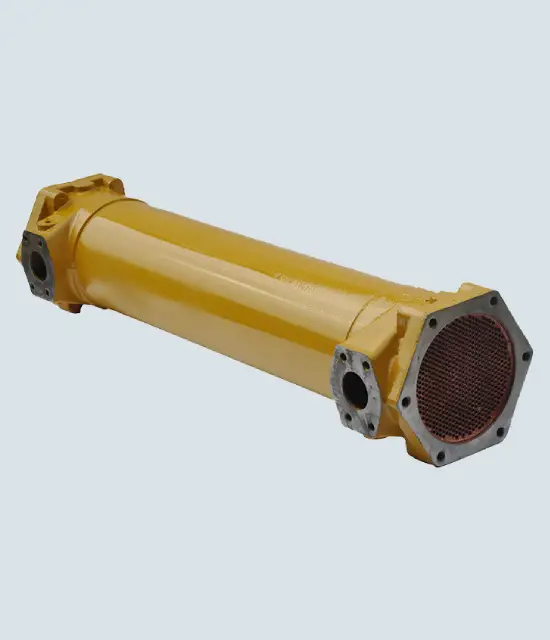about
Condenser Oil Coolers
Condenser coolers are essential elements in contemporary refrigeration and air-conditioning applications, being the main heat rejection process in the refrigeration cycle. Such thermal management devices are specialized to transfer effectively the heat of the compressed refrigerant vapor to the ambient environment, allowing for the essential phase change from gas to liquid to drive the whole cooling cycle.
Purpose of the Condenser Coolers
High-quality condenser oil coolers carry out the critical role of removing heat from hot refrigerant vapor as it leaves the compressor system. As top manufacturers of condenser oil coolers we have designed these units to allow for efficient phase change from vapor to liquid form, conditioning the refrigerant for its return to the evaporator where the cooling cycle can resume. With this critical thermal management process it has a direct effect on system efficiency, operating expenses, and overall cooling performance in a broad spectrum of applications from commercial refrigeration to industrial process cooling.

Working Principle of
Condenser Oil Coolers
Heat Exchange
- As the vapor flows through the condenser oil cooler coils or tubes, it comes into contact with a cooling medium (usually air or water). The condenser may be air-cooled or water-cooled, depending on the specific application requirements.
Heat Transfer
- Convection: The cooling medium absorbs heat from the refrigerant vapor. In air-cooled systems designed by leading condenser oil cooler manufacturers, fans assist in drawing air over the coils, while water-cooled condensers utilize circulating water for efficient thermal transfer.
- Phase Change: As the refrigerant loses heat within the condenser oil cooler, it begins to condense into a liquid. This phase change occurs at a constant temperature, releasing latent heat that's efficiently managed by the cooling system.
Flow Control
- The liquid refrigerant is then directed from the condenser oil cooler to the expansion device (like a metering valve), where its pressure is reduced before entering the evaporator, completing the refrigeration cycle that maintains optimal system performance.
Components of Condenser Oil Coolers
Coils/Tubes
Facilitate heat exchange between refrigerant and cooling medium.
Fan (in Air-Cooled Units)
Enhances airflow to improve heat transfer efficiency.
Refrigerant Inlet and Outlet
Ensure proper flow of refrigerant through the system.
Benefits of Condenser Oil Coolers
Energy Efficiency
Helps maintain optimal system performance, reducing energy consumption.
Improved Reliability
Proper cooling prevents overheating and prolongs equipment lifespan.
Enhanced Cooling Capacity
Efficient heat removal allows for effective temperature control in the conditioned space.
Condenser Oil Coolers are essential components in refrigeration and air conditioning systems. If you have any more questions or need further details, feel free to ask!
Testimonials
Recently we bought a Radiators for our Generator. The Product Quality is Excellent .This Company produces custom made Radiators and Spares too. High Quality Products and Service Support.
krishna
CLEANTEK
We got support from ark engineering wonderful work done.He given idea for money save in genset. Ark engineering owner wonderful person.i will strongly recommend to ark engineering.
R.Prasannavenkatesh
Laser Experts India
Coimbatore
We have taken the services of the ark engineering for the service of our genset radiators.it was great Service at a better price .really professional and technical.
Suresh V
FAQ'S
What are the main types of condensers?
The two main types are air-cooled and water-cooled condensers. Air-cooled condensers use ambient air for cooling, while water-cooled condensers utilize water.
How often should a condenser be maintained?
Regular maintenance is recommended at least once a year, but it may vary based on usage and environmental conditions.
What can cause a condenser to malfunction?
Common issues include dirt buildup on coils, low refrigerant levels, and mechanical failures.